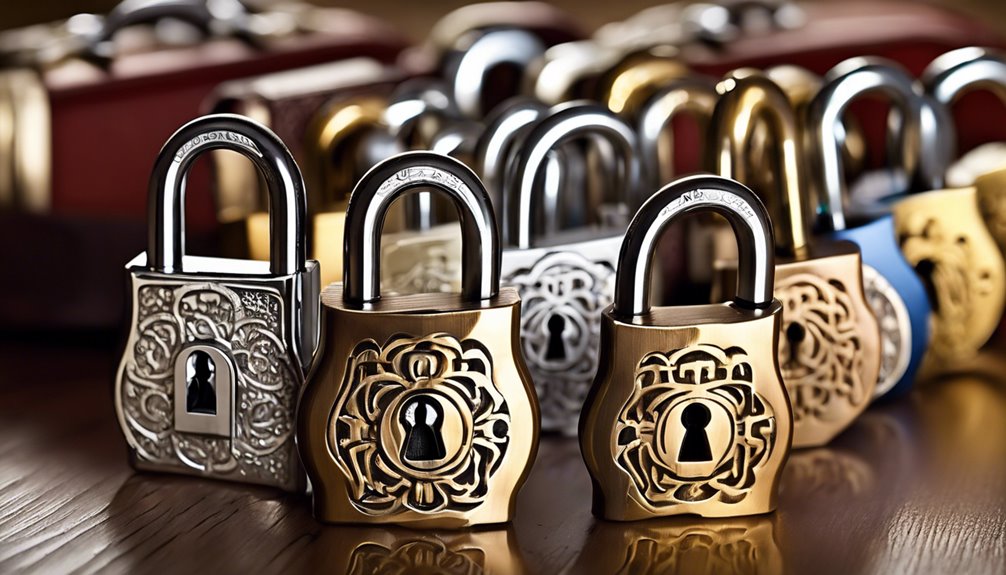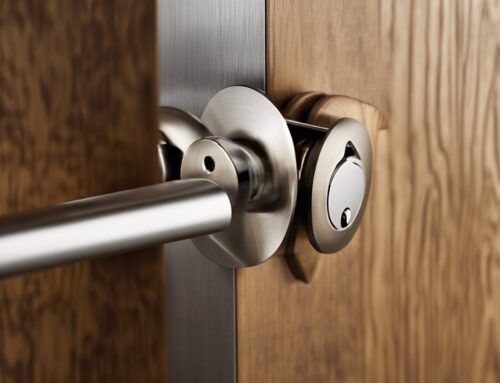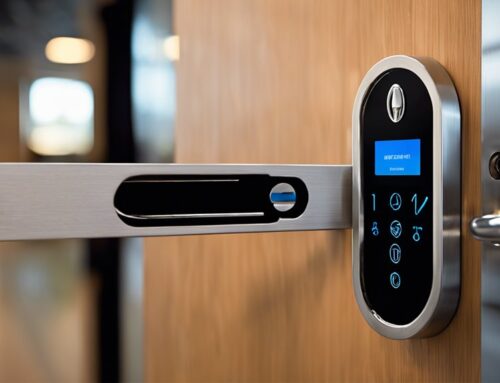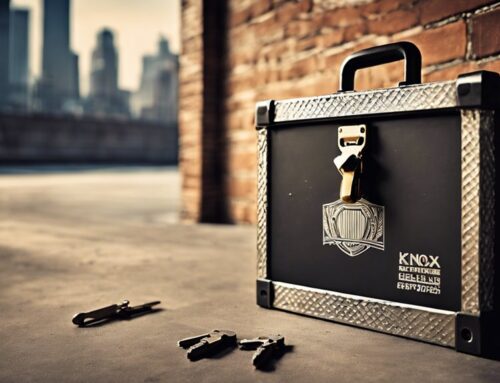You might think that opting for a luggage lock is just an extra hassle when packing, but it’s essential for your travel security. While TSA-approved locks make it easier for agents to inspect your luggage, they also serve as a practical deterrent against theft. However, not all locks are created equal, and understanding the nuances can impact your travel experience notably. Curious about how to strike the right balance between convenience and security? Let’s explore what you need to know.
Key Takeaways
- TSA-approved locks allow agents to inspect luggage without damage, ensuring compliance with travel regulations.
- Using TSA-Compatible locks enhances luggage security and minimizes the risk of theft during inspections.
- Durable materials in TSA locks resist tampering, which adds an extra layer of protection for valuables.
- Combination locks eliminate the need for keys, providing convenience for frequent travelers accessing their luggage.
- Properly labeling your luggage alongside using secure locks aids in identifying belongings and deterring theft.
Key Features of TSA Locks
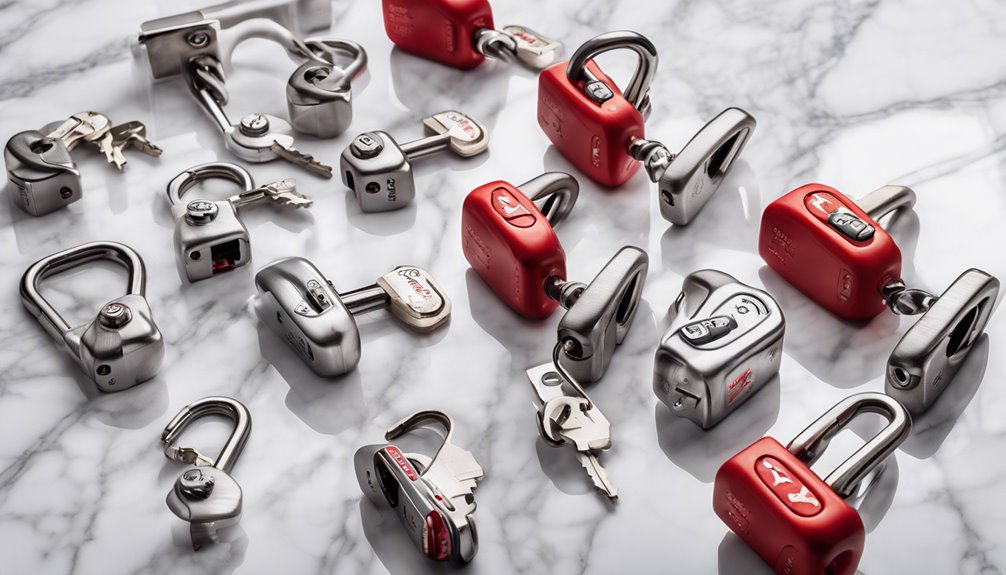
TSA locks offer a blend of convenience and security designed specifically for travelers.
These locks feature a unique mechanism recognized by the Transportation Security Administration (TSA), allowing airport security personnel to release and inspect your luggage without damaging the lock. You’ll notice the distinguishable red diamond symbol indicating TSA approval, providing peace of mind during your journey.
Most TSA locks also incorporate durable materials, resisting tampering and wear. Some models come with combination settings, eliminating the need for keys while enhancing accessibility.
You can find both padlock and built-in lock designs tailored to various luggage types.
When choosing a TSA lock, prioritize ease of use and reliability, ensuring your belongings remain secure throughout your travels.
Benefits of TSA-Approved Locks
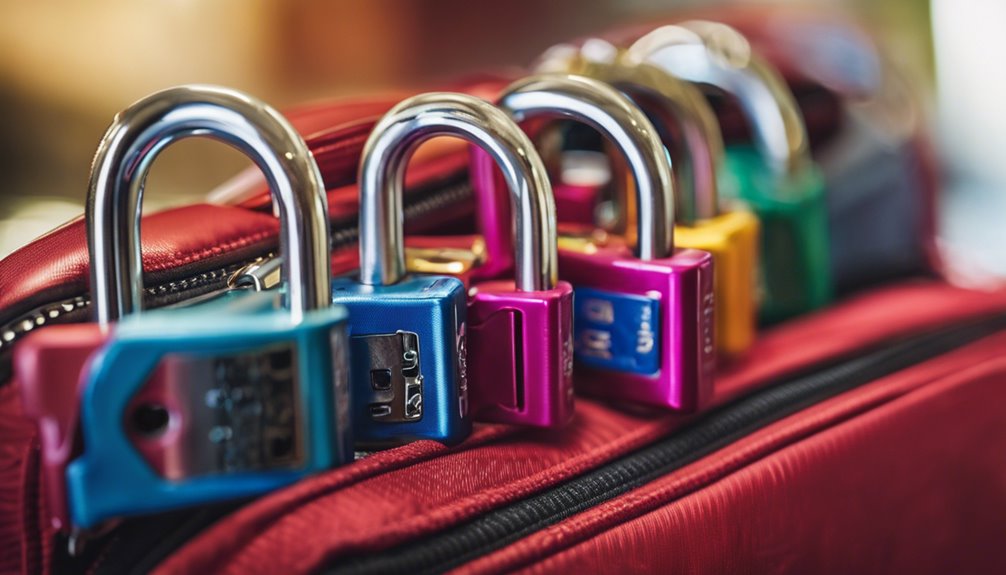
Traveling with TSA-approved locks offers significant benefits that enhance both security and convenience.
First, these locks allow TSA agents to access your luggage without damaging it, ensuring your belongings stay intact. You won’t have to worry about spending time replacing a broken lock or dealing with suitcase damage.
Furthermore, TSA-approved locks give you peace of mind; knowing your luggage can be inspected efficiently discourages theft. You’ll also streamline your travel experience at checkpoints, as security personnel can quickly examine your bag.
Additionally, these locks come in various designs, allowing you to choose a style that fits your personal aesthetic while still offering robust protection.
Embracing TSA-approved locks ultimately makes your journey smoother and more secure.
Types of TSA Locks Available
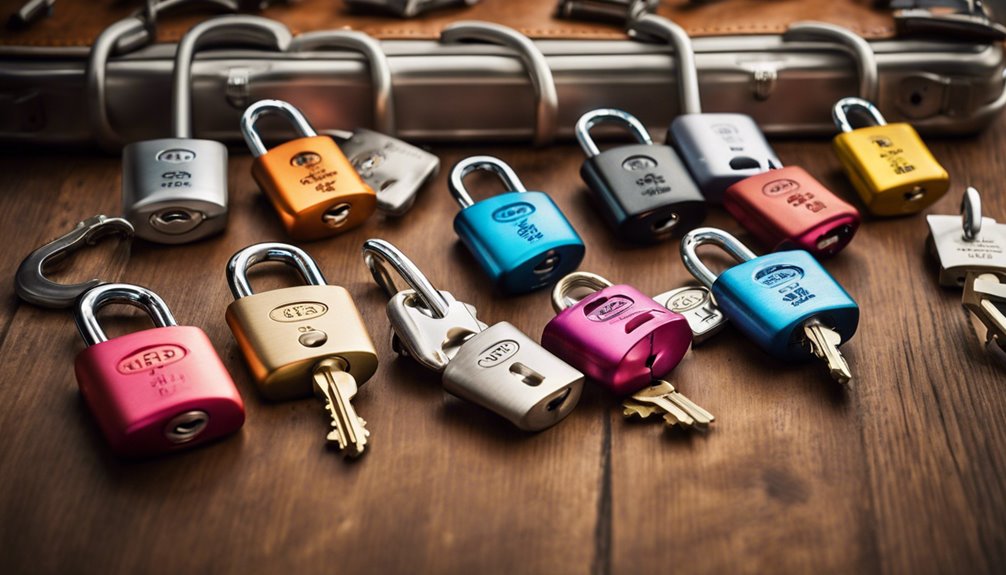
When choosing TSA locks, you’ll encounter various lock mechanism variations designed to meet different security needs.
Portable cable options offer flexibility for securing multiple items, while smart lock features provide modern convenience through tech integration.
Understanding these options will help you select the best TSA lock for your travel requirements.
Lock Mechanism Variations
Choosing the right lock mechanism is essential for securing your luggage without sacrificing convenience.
TSA-approved locks typically feature key, combination, or digital mechanisms. Key locks use a specific key shared with TSA agents, providing easy access during inspections.
Combination locks offer a numeric code that you can set and change, balancing security and ease of use. Digital locks take it a step further, often featuring keypads or biometric options for enhanced security.
Each type has its advantages: key locks are straightforward, combination locks eliminate the need for physical keys, and digital locks provide advanced security features.
Consider your travel habits and preferences when selecting a mechanism, ensuring your choice aligns with both security needs and convenience.
Portable Cable Options
While exploring portable cable options for luggage security, you’ll find a variety of TSA-approved lock types designed to enhance convenience and protection.
These locks not only secure your belongings but also allow TSA agents easy access during inspections.
Here are three common types:
- Combination Locks – Allow you to set a personal code, providing easy access for you and TSA.
- Keyed Locks – Use a key for secure locking, often favored for their rugged design.
- Cable Locks – Feature flexible cables that can easily secure multiple items or attach to fixed objects, ensuring added stability.
Smart Lock Features
Many travelers appreciate the convenience of smart locks, which come equipped with advanced features that elevate luggage security.
These TSA-compatible locks use Bluetooth technology, allowing you to open your bag via smartphone apps. This means no more fumbling with keys or combinations, plus you’ll receive notifications if someone attempts unauthorized access. Additionally, these locks benefit from advanced security features that help prevent hacking attempts.
Some models even include fingerprint scanning, providing an extra layer of protection. Look for smart locks that offer real-time tracking, so you can monitor your luggage’s location during travel.
Additionally, many smart locks allow sharing access with trusted individuals, perfect for group trips. By choosing a smart lock, you can enhance your luggage’s security while enjoying modern technology’s ease and efficiency. Furthermore, it’s essential to consider the benefits and drawbacks of smart locks to ensure they meet your specific travel needs.
Importance of TSA Compatibility
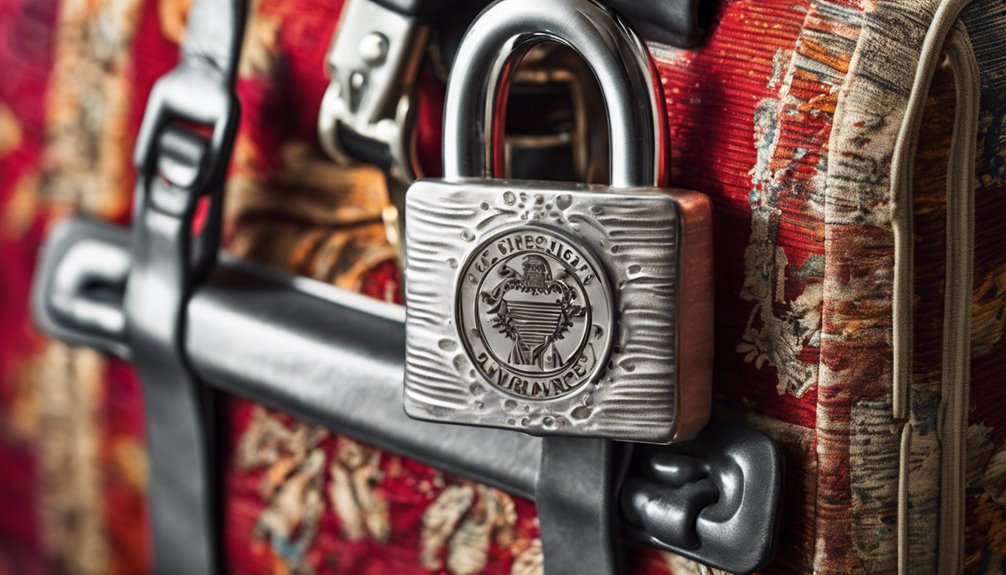
When you travel, having TSA-compatible locks is essential for smooth security inspections.
These locks prevent damage to your luggage during screenings and guarantee compliance with global travel regulations.
Without them, you risk delays and increased chances of theft or damage to your belongings.
TSA Inspection Procedures
Understanding TSA inspection procedures is essential for travelers who want to secure their luggage without inconveniences.
When you choose TSA-compatible locks, you enhance security while facilitating smooth inspections. Here are key procedures to keep in mind:
- Visual Inspection: TSA agents often perform visual checks before manual bag searches.
- Key Access: TSA-approved locks can be opened with special keys, allowing agents to access your luggage without damaging the lock.
- No Delays: With compatible locks, you’re less likely to face delays, as TSA can quickly inspect and relock your bags.
Damage Prevention Strategies
Choosing TSA-compatible locks not only enhances security but also minimizes the risk of damage to your luggage. When you use these locks, TSA agents can access your bags without forcing them open, which reduces the likelihood of breakage or accidental damage during inspections.
This means fewer worries about repairs or replacements, saving you both time and money. Additionally, high-quality TSA locks are designed with durability in mind, ensuring they can withstand travel rigors while maintaining functionality.
Implementing this strategy protects your belongings and extends the life of your luggage, ensuring your travel experience remains hassle-free. By prioritizing TSA compatibility, you’re not just securing your items; you’re also investing in the longevity of your travel gear.
Global Travel Compliance
TSA compatibility is essential for global travel compliance, as it guarantees your luggage meets safety standards recognized by international security agencies.
When you choose the right locks, you elevate your travel experience and guarantee peace of mind.
Consider these benefits:
- Streamlined Security Checks: A TSA-approved lock allows agents to open and inspect your luggage without damaging your lock or bag.
- Broader Acceptance: These locks comply with regulations in numerous countries, facilitating smoother travel.
- Enhanced Protection: They provide a base level of security, deterring unauthorized access while keeping your belongings safe.
Travel Security Measures
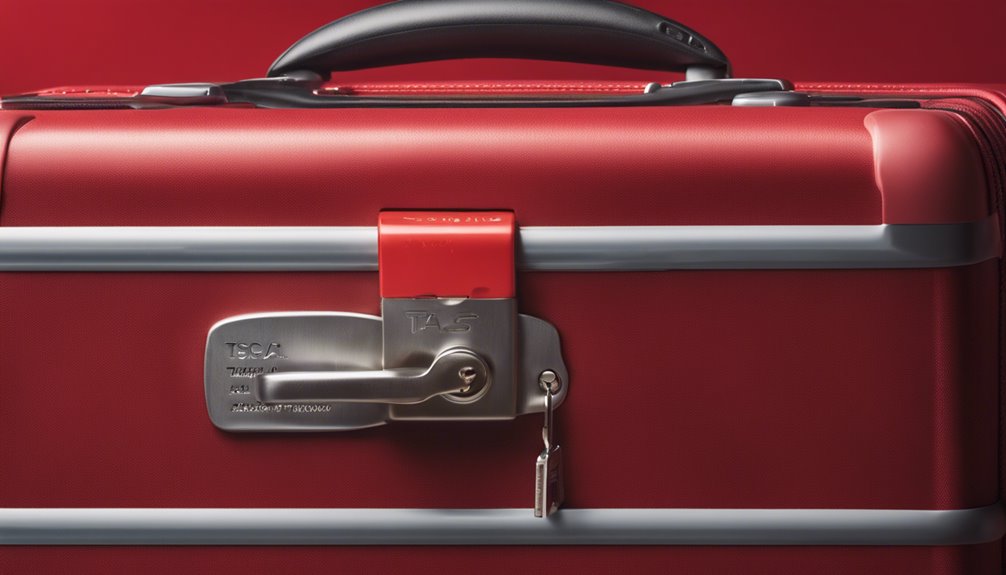
When commencing your travels, implementing effective security measures can considerably enhance your peace of mind. Prioritizing security helps prevent theft and guarantees your belongings are intact. Here are key travel security measures you should adopt:
| Security Measure | Description |
|---|---|
| Use TSA-approved locks | These locks can be opened by TSA for inspection without damage. |
| Keep valuables in carry-on | Always keep essential items close to you while traveling. |
| Stay aware of your surroundings | Maintain vigilance in crowded places to deter pickpockets. |
| Use anti-theft bags | Invest in bags with locking zippers and RFID protection. |
| Avoid displaying wealth | Conceal expensive items to reduce the risk of theft. |
Security Considerations for Luggage
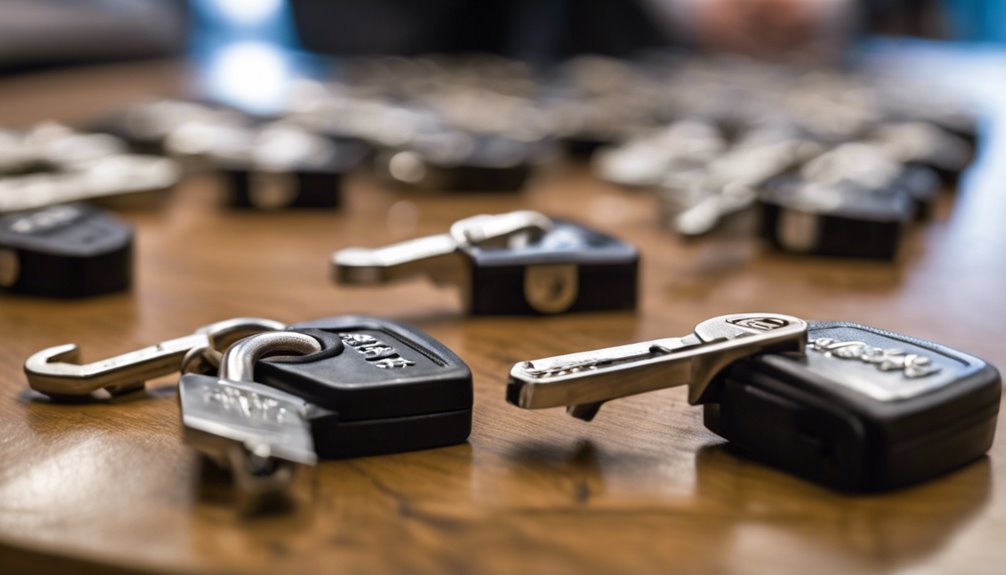
Ensuring the security of your luggage is essential, especially in a world where travel theft is a prevalent concern.
When you’re traversing airports and train stations, it’s vital to adopt effective measures. Consider these key security practices:
- Use High-Quality Locks: Invest in robust locks that resist tampering. TSA-approved locks are ideal, allowing authorities to inspect your bags without damaging them.
- Choose Durable Luggage: Opt for hard-shell luggage made from impact-resistant materials. This can deter opportunistic theft and mishandling.
- Label Your Bags Carefully: Clearly label your luggage with your contact information, but avoid personal details that may attract unwanted attention.
Tips for Choosing Lock Options
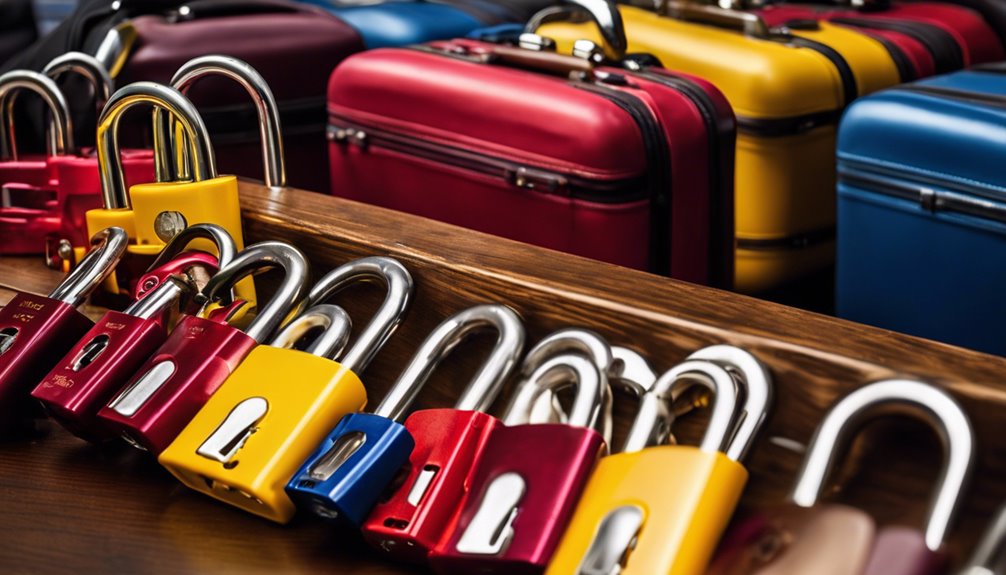
While selecting a lock for your luggage, you should prioritize both security and convenience. Consider the following tips to make an informed choice:
| Lock Type | Benefits |
|---|---|
| TSA-approved | Allow TSA access without damage |
| Combination lock | Eliminates the need for a key |
| Padlock | Versatile for different bags |
| Key lock | Higher security with unique keys |
Assess your travel needs and how frequently you’ll require access. Guarantee the lock is durable, made from high-quality materials, and easy to operate. Remember that a great lock not only protects your belongings but also adds to your travel efficiency. Choose wisely to master your luggage security.
Frequently Asked Questions
Can Tsa-Approved Locks Be Used on All Types of Luggage?
Yes, TSA-approved locks can be used on various types of luggage, including hard-shell and soft-sided suitcases.
They’re designed to allow security personnel to inspect your bags without damaging the lock.
However, it’s important to guarantee that your lock meets TSA standards to function properly.
Always check the specific guidelines for your luggage and consider other security features, like zippers and compartments, to protect your belongings effectively.
How Do I Reset a Combination TSA Lock?
To reset a combination TSA lock, start by locating the reset button, usually found on the bottom or side.
Press and hold it while you set the dials to your desired combination.
Release the reset button, and your new code’s set.
Always make sure you remember the new combination or write it down securely.
Test the lock multiple times to confirm it’s working properly before using it for travel.
Are Tsa-Approved Locks Waterproof or Weather-Resistant?
Think of TSA-approved locks as sentinels guarding your belongings.
While many of these locks can withstand some moisture, not all are fully waterproof or weather-resistant.
Some might offer a degree of protection against rain or splashes, but relying solely on them in heavy weather isn’t wise.
If you want true peace of mind, consider using additional waterproof bags or covers for your gear, ensuring everything stays dry during your travels.
What Should I Do if My TSA Lock Is Damaged?
If your TSA lock is damaged, first inspect it to assess the extent of the damage.
If it’s still functional, you might be able to use it temporarily. However, it’s essential to replace it for security reasons.
Visit a store that sells luggage locks and choose a TSA-approved replacement.
Don’t forget to register your new lock with the manufacturer if there’s an option; this might help with future issues or warranty claims.
Can I Use a Non-Tsa Lock for International Travel?
When you travel internationally, using a non-TSA lock is like dancing on a tightrope—risky but doable.
You can certainly use a non-TSA lock, but keep in mind some countries may have different security protocols. Customs agents might cut your lock if they need to access your bag.
To avoid surprises, it’s wise to check the regulations of your destination. Ultimately, the safest choice may be a TSA-approved lock for peace of mind.
Conclusion
In the journey of travel, think of TSA-approved locks as your sturdy shield, guarding your treasures while allowing for a seamless inspection process. By prioritizing security and compatibility, you transform your luggage into an impenetrable fortress, safeguarding your peace of mind. As you commence your adventures, let your chosen lock symbolize safety and convenience, ensuring every trip is a worry-free experience, so you can focus on making memories instead of stressing over your valuables.

